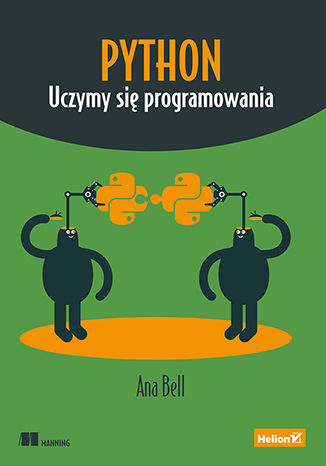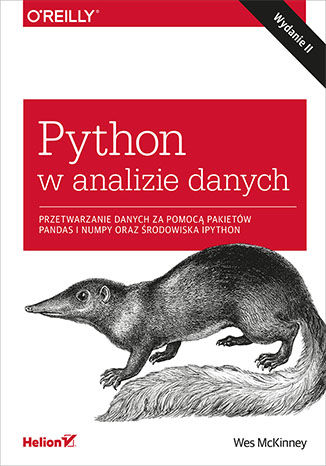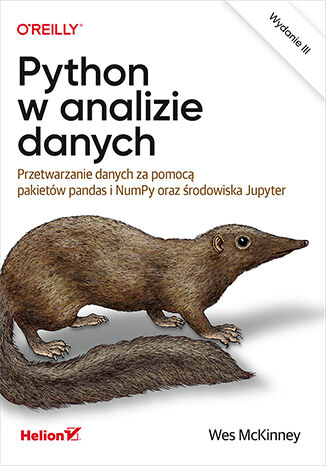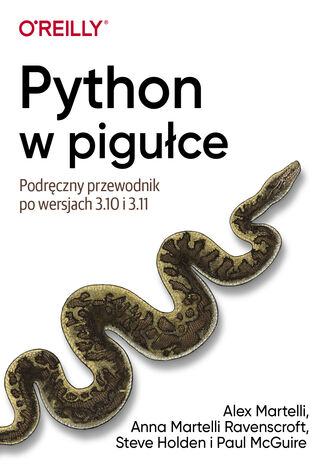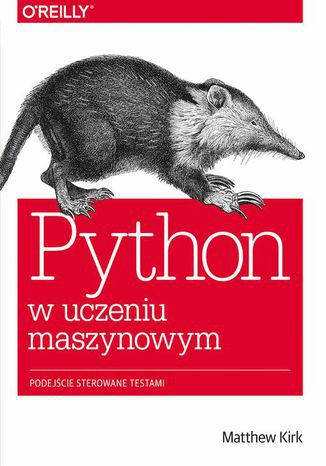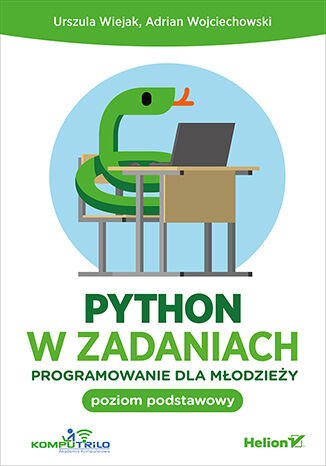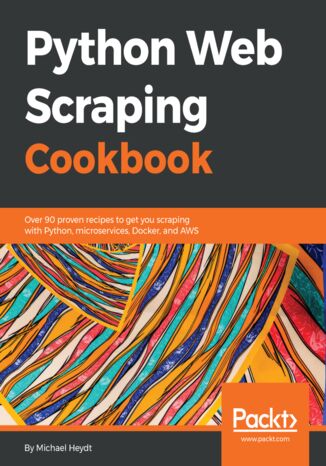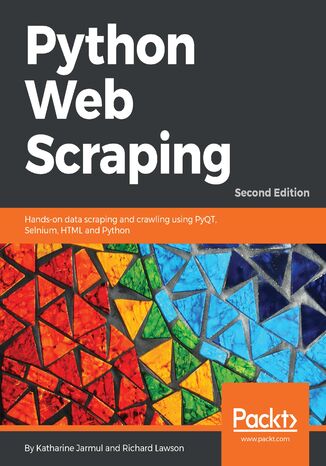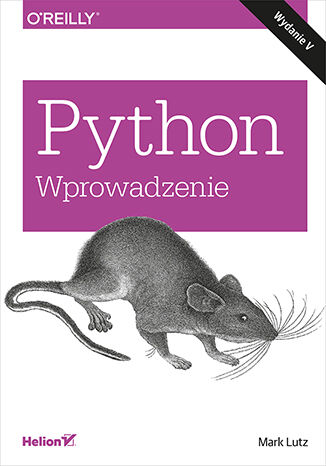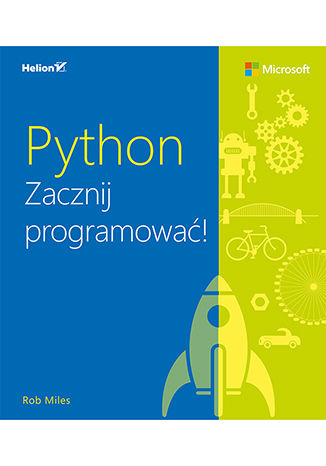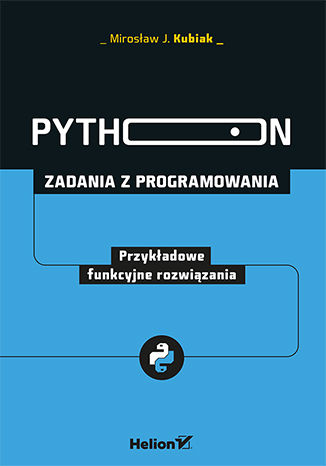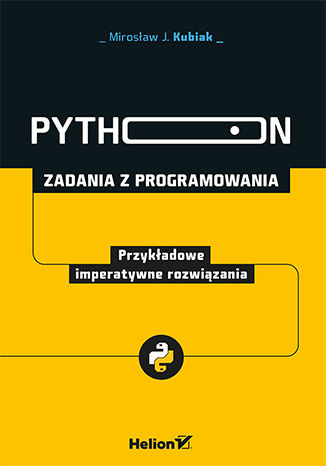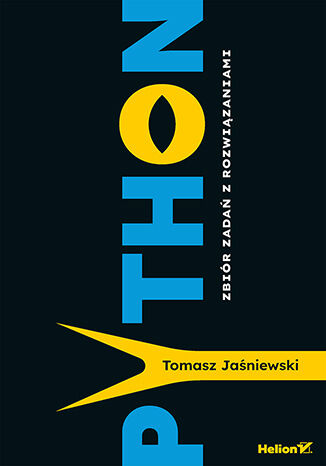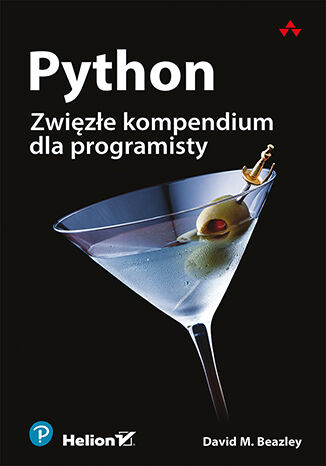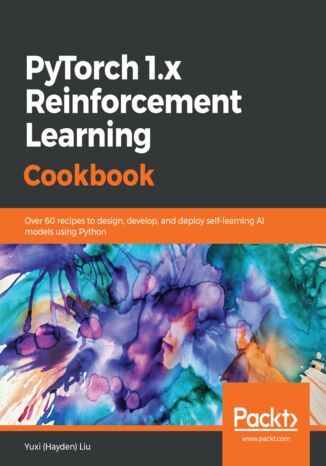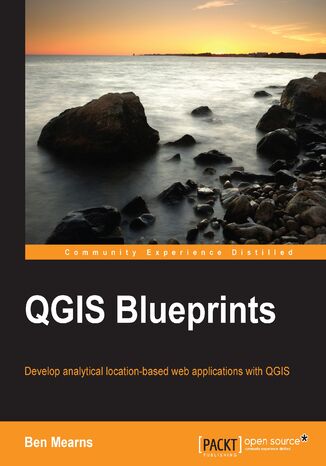Категорії
Електронні книги
-
Бізнес та економіка
- Біткойн
- Ділова жінка
- Коучинг
- Контроль
- Електронний бізнес
- Економіка
- Фінанси
- Фондова біржа та інвестиції
- Особисті компетенції
- Комп'ютер в офісі
- Комунікація та переговори
- Малий бізнес
- Маркетинг
- Мотивація
- Мультимедійне навчання
- Нерухомість
- Переконання та НЛП
- Податки
- Соціальна політика
- Порадники
- Презентації
- Лідерство
- Зв'язки з громадськістю
- Звіти, аналізи
- Секрет
- Соціальні засоби комунікації
- Продаж
- Стартап
- Ваша кар'єра
- Управління
- Управління проектами
- Людські ресурси (HR)
-
Для дітей
-
Для молоді
-
Освіта
-
Енциклопедії, словники
-
Електронна преса
- Architektura i wnętrza
- Безпека життєдіяльності
- Biznes i Ekonomia
- Будинок та сад
- Електронний бізнес
- Ekonomia i finanse
- Езотерика
- Фінанси
- Особисті фінанси
- Бізнес
- Фотографія
- Інформатика
- Відділ кадрів та оплата праці
- Для жінок
- Комп'ютери, Excel
- Бухгалтерія
- Культура та література
- Наукові та академічні
- Охорона навколишнього середовища
- Впливові
- Освіта
- Податки
- Подорожі
- Психологія
- Релігія
- Сільське господарство
- Ринок книг і преси
- Транспорт та спедиція
- Здоров'я та краса
-
Історія
-
Інформатика
- Офісні застосунки
- Бази даних
- Біоінформатика
- Бізнес ІТ
- CAD/CAM
- Digital Lifestyle
- DTP
- Електроніка
- Цифрова фотографія
- Комп'ютерна графіка
- Ігри
- Хакування
- Hardware
- IT w ekonomii
- Наукові пакети
- Шкільні підручники
- Основи комп'ютера
- Програмування
- Мобільне програмування
- Інтернет-сервери
- Комп'ютерні мережі
- Стартап
- Операційні системи
- Штучний інтелект
- Технологія для дітей
- Вебмайстерність
-
Інше
-
Іноземні мови
-
Культура та мистецтво
-
Шкільні читанки
-
Література
- Антології
- Балада
- Біографії та автобіографії
- Для дорослих
- Драми
- Журнали, щоденники, листи
- Епос, епопея
- Нарис
- Наукова фантастика та фантастика
- Фельєтони
- Художня література
- Гумор, сатира
- Інше
- Класичний
- Кримінальний роман
- Нехудожня література
- Художня література
- Mity i legendy
- Лауреати Нобелівської премії
- Новели
- Побутовий роман
- Okultyzm i magia
- Оповідання
- Спогади
- Подорожі
- Оповідна поезія
- Поезія
- Політика
- Науково-популярна
- Роман
- Історичний роман
- Проза
- Пригодницька
- Журналістика
- Роман-репортаж
- Romans i literatura obyczajowa
- Сенсація
- Трилер, жах
- Інтерв'ю та спогади
-
Природничі науки
-
Соціальні науки
-
Шкільні підручники
-
Науково-популярна та академічна
- Археологія
- Bibliotekoznawstwo
- Кінознавство / Теорія кіно
- Філологія
- Польська філологія
- Філософія
- Finanse i bankowość
- Географія
- Економіка
- Торгівля. Світова економіка
- Історія та археологія
- Історія мистецтва і архітектури
- Культурологія
- Мовознавство
- літературні студії
- Логістика
- Математика
- Ліки
- Гуманітарні науки
- Педагогіка
- Навчальні засоби
- Науково-популярна
- Інше
- Психологія
- Соціологія
- Театральні студії
- Богослов’я
- Економічні теорії та науки
- Transport i spedycja
- Фізичне виховання
- Zarządzanie i marketing
-
Порадники
-
Ігрові посібники
-
Професійні та спеціальні порадники
-
Юридична
- Безпека життєдіяльності
- Історія
- Дорожній кодекс. Водійські права
- Юридичні науки
- Охорона здоров'я
- Загальне, компендіум
- Академічні підручники
- Інше
- Закон про будівництво і житло
- Цивільне право
- Фінансове право
- Господарське право
- Господарське та комерційне право
- Кримінальний закон
- Кримінальне право. Кримінальні злочини. Кримінологія
- Міжнародне право
- Міжнародне та іноземне право
- Закон про охорону здоров'я
- Закон про освіту
- Податкове право
- Трудове право та законодавство про соціальне забезпечення
- Громадське, конституційне та адміністративне право
- Кодекс про шлюб і сім'ю
- Аграрне право
- Соціальне право, трудове право
- Законодавство Євросоюзу
- Промисловість
- Сільське господарство та захист навколишнього середовища
- Словники та енциклопедії
- Державні закупівлі
- Управління
-
Путівники та подорожі
- Африка
- Альбоми
- Південна Америка
- Центральна та Північна Америка
- Австралія, Нова Зеландія, Океанія
- Австрія
- Азії
- Балкани
- Близький Схід
- Болгарія
- Китай
- Хорватія
- Чеська Республіка
- Данія
- Єгипет
- Естонія
- Європа
- Франція
- Гори
- Греція
- Іспанія
- Нідерланди
- Ісландія
- Литва
- Латвія
- Mapy, Plany miast, Atlasy
- Мініпутівники
- Німеччина
- Норвегія
- Активні подорожі
- Польща
- Португалія
- Інше
- Przewodniki po hotelach i restauracjach
- Росія
- Румунія
- Словаччина
- Словенія
- Швейцарія
- Швеція
- Світ
- Туреччина
- Україна
- Угорщина
- Велика Британія
- Італія
-
Психологія
- Філософія життя
- Kompetencje psychospołeczne
- Міжособистісне спілкування
- Mindfulness
- Загальне
- Переконання та НЛП
- Академічна психологія
- Психологія душі та розуму
- Психологія праці
- Relacje i związki
- Батьківство та дитяча психологія
- Вирішення проблем
- Інтелектуальний розвиток
- Секрет
- Сексуальність
- Спокушання
- Зовнішній вигляд та імідж
- Філософія життя
-
Релігія
-
Спорт, фітнес, дієти
-
Техніка і механіка
Аудіокниги
-
Бізнес та економіка
- Біткойн
- Ділова жінка
- Коучинг
- Контроль
- Електронний бізнес
- Економіка
- Фінанси
- Фондова біржа та інвестиції
- Особисті компетенції
- Комунікація та переговори
- Малий бізнес
- Маркетинг
- Мотивація
- Нерухомість
- Переконання та НЛП
- Податки
- Соціальна політика
- Порадники
- Презентації
- Лідерство
- Зв'язки з громадськістю
- Секрет
- Соціальні засоби комунікації
- Продаж
- Стартап
- Ваша кар'єра
- Управління
- Управління проектами
- Людські ресурси (HR)
-
Для дітей
-
Для молоді
-
Освіта
-
Енциклопедії, словники
-
Електронна преса
-
Історія
-
Інформатика
-
Інше
-
Іноземні мови
-
Культура та мистецтво
-
Шкільні читанки
-
Література
- Антології
- Балада
- Біографії та автобіографії
- Для дорослих
- Драми
- Журнали, щоденники, листи
- Епос, епопея
- Нарис
- Наукова фантастика та фантастика
- Фельєтони
- Художня література
- Гумор, сатира
- Інше
- Класичний
- Кримінальний роман
- Нехудожня література
- Художня література
- Mity i legendy
- Лауреати Нобелівської премії
- Новели
- Побутовий роман
- Okultyzm i magia
- Оповідання
- Спогади
- Подорожі
- Поезія
- Політика
- Науково-популярна
- Роман
- Історичний роман
- Проза
- Пригодницька
- Журналістика
- Роман-репортаж
- Romans i literatura obyczajowa
- Сенсація
- Трилер, жах
- Інтерв'ю та спогади
-
Природничі науки
-
Соціальні науки
-
Науково-популярна та академічна
-
Порадники
-
Професійні та спеціальні порадники
-
Юридична
-
Путівники та подорожі
-
Психологія
- Філософія життя
- Міжособистісне спілкування
- Mindfulness
- Загальне
- Переконання та НЛП
- Академічна психологія
- Психологія душі та розуму
- Психологія праці
- Relacje i związki
- Батьківство та дитяча психологія
- Вирішення проблем
- Інтелектуальний розвиток
- Секрет
- Сексуальність
- Спокушання
- Зовнішній вигляд та імідж
- Філософія життя
-
Релігія
-
Спорт, фітнес, дієти
-
Техніка і механіка
Відеокурси
-
Бази даних
-
Big Data
-
Biznes, ekonomia i marketing
-
Кібербезпека
-
Data Science
-
DevOps
-
Для дітей
-
Електроніка
-
Графіка / Відео / CAX
-
Ігри
-
Microsoft Office
-
Інструменти розробки
-
Програмування
-
Особистісний розвиток
-
Комп'ютерні мережі
-
Операційні системи
-
Тестування програмного забезпечення
-
Мобільні пристрої
-
UX/UI
-
Веброзробка, Web development
-
Управління
Подкасти
- Електронні книги
- Програмування
- Python
Python
Python. Uczymy się programowania
Programowanie wielu ludziom kojarzy się z czymś niewiarygodnie skomplikowanym i zarezerwowanym tylko dla profesjonalistów. Tymczasem jest to umiejętność, którą można porównać do pisania, liczenia czy gotowania. Niezależnie od tego, że na świecie istnieją pisarze tworzący bestsellery, światowej sławy matematycy czy mistrzowie kuchni, ich umiejętności można wykorzystywać na co dzień do napisania listu, sprawdzenia domowych wydatków czy ugotowania zdrowego posiłku. Analogicznie każdy może nauczyć się programowania i zacząć pisać kod, który pomoże mu w rozwiązywaniu codziennych, drobnych problemów. Idealnie, jeśli naukę zaczniesz właśnie od Pythona! Dzięki tej książce szybko się przekonasz, że programowanie nie jest wiedzą tajemną, a całkiem praktyczną umiejętnością, która dodatkowo może dać sporo satysfakcji. Znajdziesz tu przystępnie podane podstawy programowania w Pythonie - zamiast rozbudowanej teorii mnóstwo ćwiczeń do samodzielnego wykonania wraz ze szczegółowymi instrukcjami i wskazówkami. Książka składa się z 38 dobrze zaplanowanych lekcji oraz 7 interesujących projektów. Dzięki przejrzystym ilustracjom, ćwiczeniom weryfikującym stopień zrozumienia lekcji oraz wskazówkom co do dalszej pracy wkrótce zaczniesz myśleć jak programista. W efekcie będziesz mógł dalej rozwijać swoje umiejętności z Pythonem lub wybrać jakiś inny język programowania - a może wykorzystasz nowe kompetencje do stworzenia czegoś zupełnie innego? Dzięki tej książce: przygotujesz środowisko pracy i zaprojektujesz strukturę programu zaczniesz posługiwać się instrukcjami, pętlami, zmiennymi, obiektami zrozumiesz, jak działają funkcje przetestujesz i zdebugujesz swój kod nauczysz się korzystać z bibliotek a przede wszystkim zaczniesz myśleć jak programista! Nie musisz być zawodowym programistą, by zabawić się z Pythonem!
Analiza danych stała się samodzielną dyscypliną wiedzy interesującą specjalistów z wielu branż: analityków biznesowych, statystyków, architektów oprogramowania czy też osoby zajmujące się sztuczną inteligencją. Wydobywanie informacji ze zbiorów danych pozwala na uzyskanie wiedzy niedostępnej w inny sposób. W tym celu dane trzeba odpowiednio przygotować, oczyścić, przetworzyć i oczywiście poddać analizie. Warto również zadbać o ich wizualizację. Do tych wszystkich zadań najlepiej wykorzystać specjalne narzędzia opracowane w języku Python. Prezentowana książka jest drugim, zaktualizowanym i uzupełnionym, wydaniem klasycznego podręcznika napisanego z myślą o analitykach, którzy dotychczas nie pracowali w Pythonie, oraz o programistach Pythona, którzy nie zajmowali się dotąd analizą danych ani obliczeniami naukowymi. Przedstawiono tu możliwości oferowane przez Pythona 3.6 oraz najnowsze funkcje pakietów Pandas i NumPy, a także środowisk IPython i Jupyter. Przy opisie poszczególnych narzędzi analitycznych wyjaśniono ich działanie i zaprezentowano przykłady ich wykorzystania w sposób efektywny i kreatywny. Ta książka powinna się znaleźć w podręcznej bibliotece każdego analityka danych! Najważniejsze zagadnienia: Eksploracja danych za pomocą powłoki IPython i środowiska Jupyter Korzystanie z pakietów NumPy i Pandas Tworzenie wizualizacji danych za pomocą pakietu Matplotlib Praca z danymi regularnych i nieregularnych szeregów czasowych Rozwiązywanie rzeczywistych problemów analitycznych Python: poznaj idealne narzędzie do analizy danych!
Wprawny analityk danych potrafi z nich uzyskać wiedzę ułatwiającą podejmowanie trafnych decyzji. Od kilku lat można do tego używać nowoczesnych narzędzi Pythona, które zbudowano specjalnie do tego celu. Praca z nimi nie wymaga głębokiej znajomości statystyki czy algebry. Aby cieszyć się uzyskanymi rezultatami, wystarczy się wprawić w stosowaniu kilku pakietów i środowisk Pythona. Ta książka jest trzecim, starannie zaktualizowanym wydaniem wyczerpującego przewodnika po narzędziach analitycznych Pythona. Uwzględnia Pythona 3.0 i bibliotekę pandas 1.4. Została napisana w przystępny sposób, a poszczególne zagadnienia bogato zilustrowano przykładami, studiami rzeczywistych przypadków i fragmentami kodu. W trakcie lektury nauczysz się korzystać z możliwości oferowanych przez pakiety pandas i NumPy, a także środowiska IPython i Jupyter. Nie zabrakło wskazówek dotyczących używania uniwersalnych narzędzi przeznaczonych do ładowania, czyszczenia, przekształcania i łączenia zbiorów danych. Pozycję docenią analitycy zamierzający zacząć pracę w Pythonie, jak również programiści Pythona, którzy chcą się zająć analizą danych i obliczeniami naukowymi. Dzięki książce nauczysz się: eksplorować dane za pomocą powłoki IPython i środowiska Jupyter korzystać z funkcji pakietów NumPy i pandas używać pakietu matplotlib do tworzenia czytelnych wizualizacji analizować i przetwarzać dane regularnych i nieregularne szeregi czasowe rozwiązywać rzeczywiste problemy analityczne Wes McKinney zaktualizował swoją książkę, aby była podstawowym źródłem informacji o wszystkich zagadnieniach związanych z analizą danych przy użyciu języka Python i biblioteki pandas. Gorąco polecam tę pozycję! Paul Barry, wykładowca i autor książek
Python w pigułce. Podręczny przewodnik po wersjach 3.10 i 3.11
Alex Martelli, Anna Martelli Ravenscroft, Steve Holden, Paul McGuire
Język Python został ostatnio sklasyfikowany w indeksie TIOBE jako najpopularniejszy obecnie język programowania, co zawdzięcza szerokim możliwościom stosowania go w projektowaniu, prototypowaniu, testach, wdrażaniu i konserwacji oprogramowania. To zaktualizowane i rozszerzone czwarte wydanie pokazuje, jak najlepiej używać Pythona, niezależnie od tego, czy jesteś profesjonalnym programistą, czy też chcesz użyć tego języka do rozwiązywania problemów w konkretnej dziedzinie. Nowe wydanie, starannie przygotowane przez uznawanych ekspertów dziedzinowych, skupia się na wersji 3.10, zapewniając pełną aktualność tej kluczowej pozycji dla pięciu ostatnich wersji języka, od 3.7 po niedawno wydaną wersję 3.11. Ten podręczny przewodnik pozwoli ci: - Nauczyć się tego, jak Python reprezentuje dane i sam program jako obiekty - Zrozumieć przydatnośc i zastosowania adnotacji typów - Dowiedzieć się, które funkcje języka pojawiły się w niedawnych wersjach i w której - Opanować idiomatyczne posługiwanie się nowoczesnym Pythonem - Poznać sposoby właściwego strukturyzowania projektów w Pythonie - Nauczyć się testować, debugować i optymalizować kod Pythona "Pogłębiony, zaktualizowany, przejrzysty i użyteczny opis języka Python. Doskonałe kompendium z wieloma spostrzeżeniami i poradami, które zaspokoi każdego, od średniozaawansowanych po ekspertów". -Mark Summerfield Dyrektor Qtrac Ltd. Cała czwórka autorów to członkowie Python Software Foundations, zaś troje z nich to zdobywcy Frank Willison Memorial Award. Są powszechnie uznawani za swój wkład w Pythona i jego społeczność. Ich łączne doświadczenie obejmuje najrozmaitsze środowiska i platformy, od akademickich, poprzez startupy, aż po międzynarodowe korporacje i instytucje rządowe. Wspólnie opracowali autorytatywny podręcznik składni i funkcjonalności języka Python, biblioteki standardowej oraz wybranych innych pakietów.
Ten praktyczny przewodnik pozwoli osiągnąć biegłość w stosowaniu uczenia maszynowego w codziennej pracy. Autor, Matthew Kirk, bez akademickich rozważań pokazuje, jak integrować i testować algorytmy uczenia maszynowego w swoim kodzie. Książka przedstawia wykorzystanie testów z użyciem bibliotek naukowych NumPy, Pandas, Scikit-Learn oraz SciPy dla języka Python, ilustrując je licznymi wykresami oraz przykładami kodu. Książka ta pomoże programistom i analitykom biznesowym zainteresowanym badaniem danych w: Zapoznaniu się z rzeczywistymi przykładami testowania poszczególnych algorytmów poprzez zajmujące ćwiczenia praktyczne. Stosowaniu programowania sterowanego testami do pisania i uruchamiania testów przed rozpoczęciem kodowania. Badaniu technik poprawiających nasze modele uczenia maszynowego poprzez wydobywanie danych i opracowywanie funkcjonalności. Zwracaniu uwagi na ryzyka związane z uczeniem maszynowym takie jak niedopasowanie danych. Pracy z algorytmem K najbliższych sąsiadów, sieciami neuronowymi, klastrami i innymi technikami. Matthew Kirk jest konsultantem, autorem i międzynarodowym prelegentem, specjalizującym się w uczeniu maszynowym i analizie danych z wykorzystaniem języków Ruby i Python. Mieszka w Seattle i lubi pomagać innym programistom w integrowaniu analizy danych ze stosowanymi przez nich technologiami. Więcej zasobów dotyczących uczenia maszynowego można znaleźć pod adresem www.matthewkirk.com.
Python w zadaniach. Programowanie dla młodzieży. Poziom podstawowy
Urszula Wiejak, Adrian Wojciechowski
Opanuj Pythona od strony praktycznej! Poznaj konstrukcje języka Python Naucz się stosować je w praktyce Wykorzystaj standardowe biblioteki Rozwiąż 139 zadań i sprawdź swoje rozwiązania Python to bardzo popularny, wydajny i elastyczny język programowania ogólnego przeznaczenia, którego prosta, czytelna i zwięzła składnia zdobyła uznanie rzesz programistów na całym świecie. Duże możliwości, przenośność kodu, możliwość pisania skryptów - wszystko to sprawia, że Python znajduje zastosowanie w najróżniejszych dziedzinach i wspiera rozwój wielu popularnych serwisów internetowych. Bez wątpienia warto się go nauczyć! Jeśli chcesz poznać ten język, jesteś na dobrej drodze! Książka omawia najważniejsze elementy programowania w Pythonie. Co ważne, wiedza została usystematyzowana w formie konkretnych zadań do wykonania. Poznasz dzięki nim typy danych i składnię języka, dowiesz się, jak debugować programy, nauczysz się korzystać z funkcji oferowanych przez biblioteki i opanujesz podstawy tworzenia graficznych interfejsów użytkownika. To podręcznik przeznaczony dla młodzieży, ale doskonale sprawdzi się również w przypadku osób dorosłych, które rozpoczynają przygodę z programowaniem. Instalowanie oraz konfigurowanie środowiska i niezbędnych narzędzi Podstawowe informacje na temat języka i programowania Typy danych, zmienne proste i tablicowe Operatory, instrukcje warunkowe oraz instrukcje pętli Operacje wejścia-wyjścia w konsoli i na plikach Biblioteki graficzne, dźwiękowe i wideo Korzystanie z funkcji wbudowanych i tworzenie własnych Programowanie obiektowe, obsługa wątków i wyjątków Tworzenie graficznych interfejsów użytkownika Zadania do samodzielnego wykonania i praktyczny projekt gry Poznaj Pythona, rozwiązuj zadania, zostań programistą!
Python Web Scraping Cookbook is a solution-focused book that will teach you techniques to develop high-performance scrapers and deal with crawlers, sitemaps, forms automation, Ajax-based sites, caches, and more. You'll explore a number of real-world scenarios where every part of the development/product life cycle will be fully covered. You will not only develop the skills needed to design and develop reliable performance data flows, but also deploy your codebase to AWS. If you are involved in software engineering, product development, or data mining (or are interested in building data-driven products), you will find this book useful as each recipe has a clear purpose and objective. Right from extracting data from the websites to writing a sophisticated web crawler, the book's independent recipes will be a godsend. This book covers Python libraries, requests, and BeautifulSoup. You will learn about crawling, web spidering, working with Ajax websites, paginated items, and more. You will also learn to tackle problems such as 403 errors, working with proxy, scraping images, and LXML.By the end of this book, you will be able to scrape websites more efficiently and able todeploy and operate your scraper in the cloud.
The Internet contains the most useful set of data ever assembled, most of which is publicly accessible for free. However, this data is not easily usable. It is embedded within the structure and style of websites and needs to be carefully extracted. Web scraping is becoming increasingly useful as a means to gather and make sense of the wealth of information available online.This book is the ultimate guide to using the latest features of Python 3.x to scrape data from websites. In the early chapters, you'll see how to extract data from static web pages. You'll learn to use caching with databases and files to save time and manage the load on servers. Aftercovering the basics, you'll get hands-on practice building a more sophisticated crawler using browsers, crawlers, and concurrent scrapers.You'll determine when and how to scrape data from a JavaScript-dependent website using PyQt and Selenium. You'll get a better understanding of how to submit forms on complex websites protected by CAPTCHA. You'll find out how to automate these actions with Python packages such as mechanize. You'll also learn how to create class-based scrapers with Scrapy libraries and implement your learning on real websites.By the end of the book, you will have explored testing websites with scrapers, remote scraping, best practices, working with images, and many other relevant topics.
Python. Wprowadzenie. Wydanie V
Python jest wieloparadygmatowym, wszechstronnym językiem programowania, zoptymalizowanym pod kątem efektywności pracy, czytelności kodu i jakości oprogramowania. Jego popularność rośnie, co wynika z wielości i różnorodności zastosowań oraz z tego, że jest darmowy i łatwo przenośny, można się go szybko nauczyć, a tworzenie kodu Pythona sprawia sporo przyjemności. Wszystkie te cechy dają zespołom deweloperskim strategiczną przewagę w dużych i małych projektach. Aby wykorzystać zalety Pythona, konieczne jest zdobycie solidnych podstaw tego języka, a następnie dogłębne zrozumienie bardziej zaawansowanych koncepcji i porządne ich przećwiczenie podczas pisania własnego kodu. To kompleksowy podręcznik do nauki programowania w Pythonie. Jego piąte wydanie zostało gruntownie zaktualizowane i rozbudowane o dodatkowe treści. Omówiono tu najnowsze wersje Pythona w liniach 3.X i 2.X, czyli 3.3 i 2.7, i dodano opisy nowych lub rozszerzonych mechanizmów, takich jak obsługa formatu JSON, moduł timeit, pakiet PyPy, metoda os.popen, generatory, rekurencje, słabe referencje, atrybuty i metody __mro__, __iter__, super, __slots__, metaklasy, deskryptory, funkcja random, pakiet Sphinx i wiele innych. W książce znalazło się mnóstwo ćwiczeń, quizów, pomocnych ilustracji oraz przykładów kodu. Jest to kompendium dla każdego, kto chce szybko zacząć programować w Pythonie i tworzyć wydajny kod o wysokiej jakości. W tej książce przedstawiono między innymi: składnię Pythona i koncepcje związane z iteracjami dokładny opis ważniejszych wbudowanych typów obiektów i ich możliwości struktury programistyczne wyższego poziomu programowanie funkcyjne i programowanie zorientowane obiektowo zaawansowane zagadnienia dla profesjonalistów Już dziś zacznij pisać znakomity kod w Pythonie!
Python jest znakomitym językiem do tworzenia wydajnego kodu. Nadaje się do różnych, również bardzo nietypowych zastosowań. Samo programowanie natomiast, choć jest w nim coś magicznego, stanowi umiejętność, którą każdy może opanować pod warunkiem odrobiny zaangażowania. Naturalnie, nauka kodowania nie zawsze przebiega bezproblemowo. Trzeba zrozumieć sposób działania komputera i nauczyć się nieco inaczej myśleć o rozwiązywaniu problemów. Napisanie dobrze działającego programu jest jednak niezwykle satysfakcjonującym doświadczeniem, a programowanie samo w sobie jest jedną z najbardziej kreatywnych umiejętności. Ta książka jest przeznaczona dla osób, które nie mają doświadczenia w programowaniu. Została pomyślana jako podręcznik, który maksymalnie ułatwia uczenie się skutecznego kodowania. Najpierw omówiono niskopoziomowe instrukcje programowania, aby stopniowo przejść do przedstawienia i analizy profesjonalnych konstrukcji programistycznych. Książka jest przyjazna w odbiorze, a przy tym jest pełna innowacji, takich jak choćby opis korzystania z wbudowanych gadżetów czy projekty "zrób to sam". Dzięki temu Czytelnik bardzo szybko odkryje, że programowanie jest świetną, ekscytującą i porywającą zabawą! W tej książce: wprowadzenie do Pythona i przygotowanie środowiska do pracy podstawowe konstrukcje kodu projektowanie konstrukcji bardziej złożonych aplikacji tworzenie dokumentacji aplikacji w Pythonie korzystanie z różnych bibliotek Pythona Wszechstronny, wydajny, elastyczny. Python - wybór idealny!
Python. Zadania z programowania. Przykładowe funkcyjne rozwiązania
Programuj funkcyjnie w Pythonie! Poznaj funkcyjny paradygmat programowania Naucz się wykorzystywać go w języku Python Rozwiązuj praktyczne problemy programistyczne Python to obecnie jeden z najpopularniejszych języków programowania, a jego znajomość zapewnia zatrudnienie w największych firmach i przy najciekawszych projektach w branży informatycznej. Szerokie możliwości, duża elastyczność i wszechstronność, przejrzystość i zwięzłość składni, czytelność i klarowność kodu, rozbudowany pakiet bibliotek standardowych, niemal nieograniczone zastosowanie w różnych dziedzinach nauki i biznesu - wszystko to sprawia, że język ten z pewnością utrzyma swoją pozycję, a programujące w nim osoby jeszcze długo będą należały do najbardziej pożądanych specjalistów na rynku IT. Jedną z niewątpliwych zalet Pythona jest to, że wspiera różne paradygmaty programowania, w tym wydajne programowanie funkcyjne. Jeśli chcesz poszerzyć swoją wiedzę na temat języka i dowiedzieć się, jak wykorzystać jego możliwości w tym podejściu, sięgnij po książkę Python. Zadania z programowania. Przykładowe funkcyjne rozwiązania. Dzięki zamieszczonym w niej zadaniom o różnym poziomie trudności oraz ich rozwiązaniom poznasz podstawy programowania funkcyjnego w Pythonie i nauczysz się pisać zwięzłe i eleganckie programy, które działają szybko i zużywają mniej zasobów, praktyczne wskazówki zaś pomogą Ci zrozumieć bardziej zawiłe zagadnienia. Wprowadzenie do programowania funkcyjnego w Pythonie Sekwencyjne struktury danych i operacje na plikach Wykorzystanie krotek i ciągów tekstowych Zastosowanie słowników i zbiorów Wybrane moduły programowania funkcyjnego Funkcje rekurencyjne i rekurencja ogonowa Programowanie synchroniczne i asynchroniczne Podstawy programowania współbieżnego i równoległego Przekonaj się, jak prosty może być język Python! Jeśli chcesz poznać podstawy języka Python oraz opanować paradygmaty imperatywny i obiektowy, przed lekturą tej książki sięgnij po inną publikację tego autora: Python. Zadania z programowania. Przykładowe imperatywne rozwiązania.
Python. Zadania z programowania. Przykładowe imperatywne rozwiązania
Programuj imperatywnie w Pythonie! Poznaj język Python od strony praktycznej Naucz się czytać i analizować kod Pythona Rozwiązuj problemy programistyczne Python to obecnie jeden z najpopularniejszych języków programowania, a jego znajomość zapewnia zatrudnienie w największych firmach i przy najciekawszych projektach w branży informatycznej. Szerokie możliwości, duża elastyczność i wszechstronność, przejrzystość i zwięzłość składni, czytelność i klarowność kodu, rozbudowany pakiet bibliotek standardowych, niemal nieograniczone zastosowanie w różnych dziedzinach nauki i biznesu - wszystko to sprawia, że język ten z pewnością utrzyma swoją pozycję, a programujące w nim osoby jeszcze długo będą należały do najbardziej pożądanych specjalistów na rynku IT. Jedną z niewątpliwych zalet Pythona jest to, że wspiera różne paradygmaty programowania, w tym programowanie imperatywne. Jeśli chcesz poznać język od podstaw i dowiedzieć się, jak wykorzystać jego możliwości w podejściu imperatywnym i obiektowym, sięgnij po książkę Python. Zadania z programowania. Przykładowe imperatywne rozwiązania. Dzięki zamieszczonym w niej zadaniom o różnym poziomie trudności oraz ich rozwiązaniom szybko i gruntownie nauczysz się programować w Pythonie i czytać kod napisany w tym języku, a praktyczne wskazówki pomogą Ci zrozumieć bardziej zawiłe zagadnienia. Podstawowe operacje wejścia-wyjścia w języku Python Konstrukcje warunkowe, operatory logiczne i pętle Definiowanie i wywoływanie funkcji oraz rekurencja Programowanie zorientowane obiektowo w Pythonie Odczytywanie i zapisywanie plików tekstowych i binarnych Obsługa wyjątków, dekoratory i menedżery kontekstu Iteratory, generatory, funkcje wyższego rzędu Przekonaj się, jak prosty może być język Python! Jeśli chcesz poszerzyć swoją wiedzę i interesuje Cię programowanie funkcyjne w języku Python, sięgnij również po inną książkę tego autora: Python. Zadania z programowania. Przykładowe funkcyjne rozwiązania.
Python. Zbiór zadań z rozwiązaniami
Python w praktyce zadań i rozwiązań Język programowania ogólnego przeznaczenia Python należy obecnie do najpopularniejszych na świecie. Skąd się bierze jego fenomen? Niewątpliwie kluczowe znaczenie ma tu bardzo czytelna składnia, mocno zbliżona do składni języka naturalnego. Czyni to Pythona dość łatwym do opanowania, także dla początkujących. Osoby bardziej doświadczone doceniają go za wszechstronność. Pythona można używać w różnych dziedzinach, takich jak analiza danych, sztuczna inteligencja, tworzenie stron internetowych, automatyka i automatyzacja, pisanie aplikacji mobilnych i wiele innych. Dodajmy do tego rozbudowany pakiet bibliotek standardowych i oto mamy (niemal) idealny język programowania. A jak się go nauczyć? Najlepiej w praktyce. Rozwiązując zadania i weryfikując własne rezultaty z podanymi w tym zbiorze rozwiązaniami. Autor przygotował ten zeszyt ćwiczeń tak, by zawrzeć w nim wyzwania nieco prostsze, przeznaczone dla mniej zaawansowanych adeptów Pythona, jak i bardziej złożone, wymagające lepszej znajomości zagadnienia. Każde zadanie ma wyraźnie określony stopień trudności, a także jest opatrzone tagami pozwalającymi się zorientować w wymaganiach omawianej tematyki. Sugerują one obszar wiedzy, którą można się posłużyć podczas rozwiązywania. Ta książka pozwoli Ci zacząć przygodę z Pythonem, którego znajomość już dziś możemy określić kompetencją przyszłości, i to pożądaną nie tylko w branży IT.
Python. Zwięzłe kompendium dla programisty
Przez ostatnie trzydzieści lat Python intensywnie się rozwijał. Stał się dojrzałym językiem programowania, nadającym się do tworzenia zarówno niewielkich, wyspecjalizowanych narzędzi, jak i złożonych systemów. Zakres jego możliwości poszerzają liczne biblioteki i narzędzia. Ta wszechstronność i bogactwo stanowią jednak duże wyzwanie dla programistów, którzy chcieliby nie tyle poznać poszczególne funkcje tego języka, ile dogłębnie go zrozumieć i nauczyć się "pythonicznego" sposobu myślenia. Ta książka jest zwięzłym, skupionym na praktyce przewodnikiem po Pythonie w wersji 3.6 i nowszych. Dzięki niej skoncentrujesz się na rdzeniu języka i podstawowych zagadnieniach, które musisz doskonale opanować, jeśli chcesz pisać w nim dobry kod. Dowiesz się zatem, jak działa Python i jakich zasad należy przestrzegać podczas tworzenia programów, które później będą łatwe do przetestowania, debugowania i utrzymania. Dobrze zrozumiesz kluczowe kwestie, takie jak abstrakcja danych, kontrola przepływu programu, struktura programu, funkcje, obiekty i moduły. Poszczególne treści zostały zilustrowane przejrzystymi fragmentami kodu, pozwalającymi nie tylko łatwiej przyswoić opisane zagadnienia, ale i poczuć niezwykły urok Pythona - tę magię, która sprawia, że programowanie w tym języku daje mnóstwo przyjemności i satysfakcji! W książce: czym jest rdzeń Pythona praca z danymi i ich analiza zasady tworzenia przejrzystego i niezawodnego kodu funkcje i idiomy w programowaniu funkcjonalnym generatory, klasy, moduły, pakiety prawidłowa obsługa I/O i korzyści ze stosowania słowników Python? Zacznij od tego, co w nim najważniejsze!
Reinforcement learning (RL) is a branch of machine learning that has gained popularity in recent times. It allows you to train AI models that learn from their own actions and optimize their behavior. PyTorch has also emerged as the preferred tool for training RL models because of its efficiency and ease of use.With this book, you'll explore the important RL concepts and the implementation of algorithms in PyTorch 1.x. The recipes in the book, along with real-world examples, will help you master various RL techniques, such as dynamic programming, Monte Carlo simulations, temporal difference, and Q-learning. You'll also gain insights into industry-specific applications of these techniques. Later chapters will guide you through solving problems such as the multi-armed bandit problem and the cartpole problem using the multi-armed bandit algorithm and function approximation. You'll also learn how to use Deep Q-Networks to complete Atari games, along with how to effectively implement policy gradients. Finally, you'll discover how RL techniques are applied to Blackjack, Gridworld environments, internet advertising, and the Flappy Bird game.By the end of this book, you'll have developed the skills you need to implement popular RL algorithms and use RL techniques to solve real-world problems.

